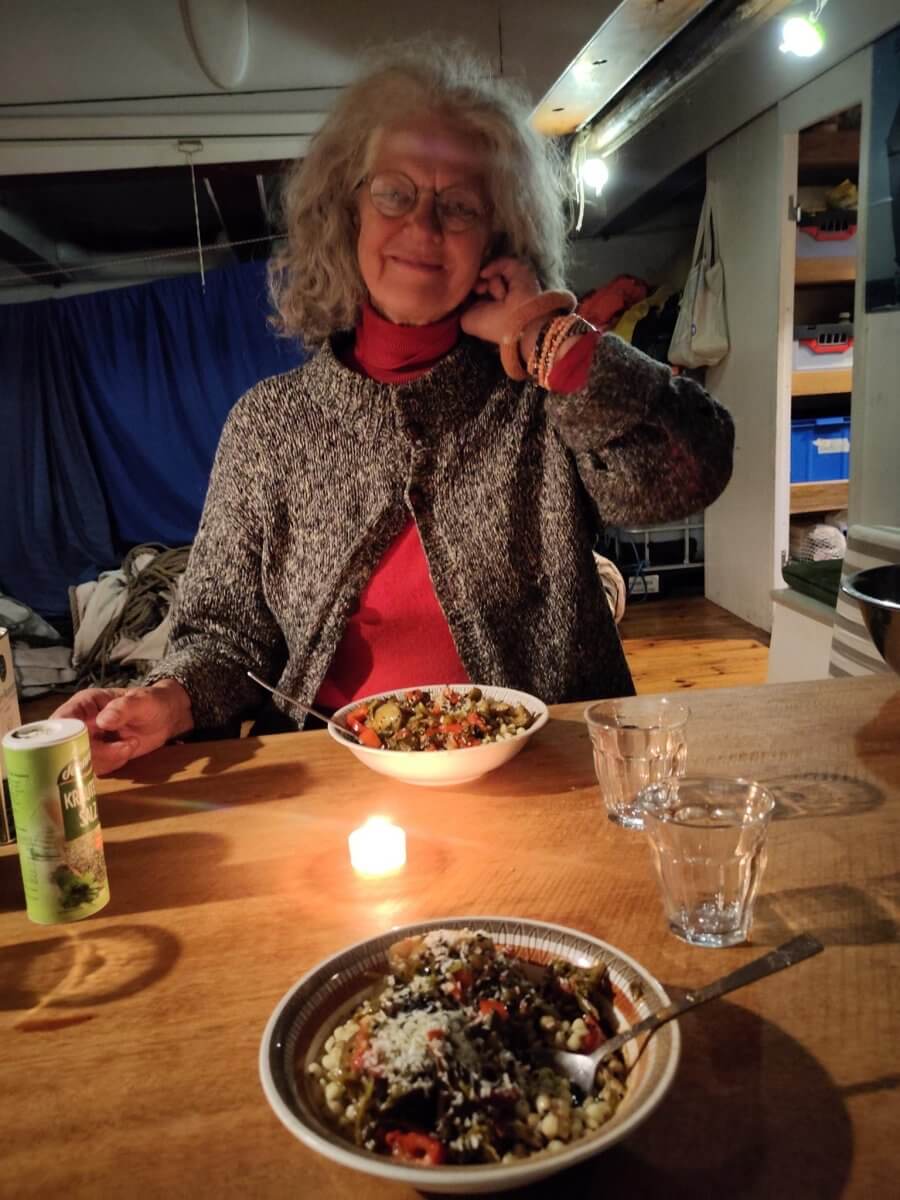4th of octobre 2024
dangling with my legs – fryday the fourth – 11:03 am – Diepenring/Groningen/Netherlands –
diepen, this dutch word says something about the depth of the water, no matter in it is a man-made canal or a natural waterway. The other part of this name for the place, where I am sitting on this golden morning tells us about the ring of water surrounding the center of Groningen, as it can bei seen on the historical drawing:
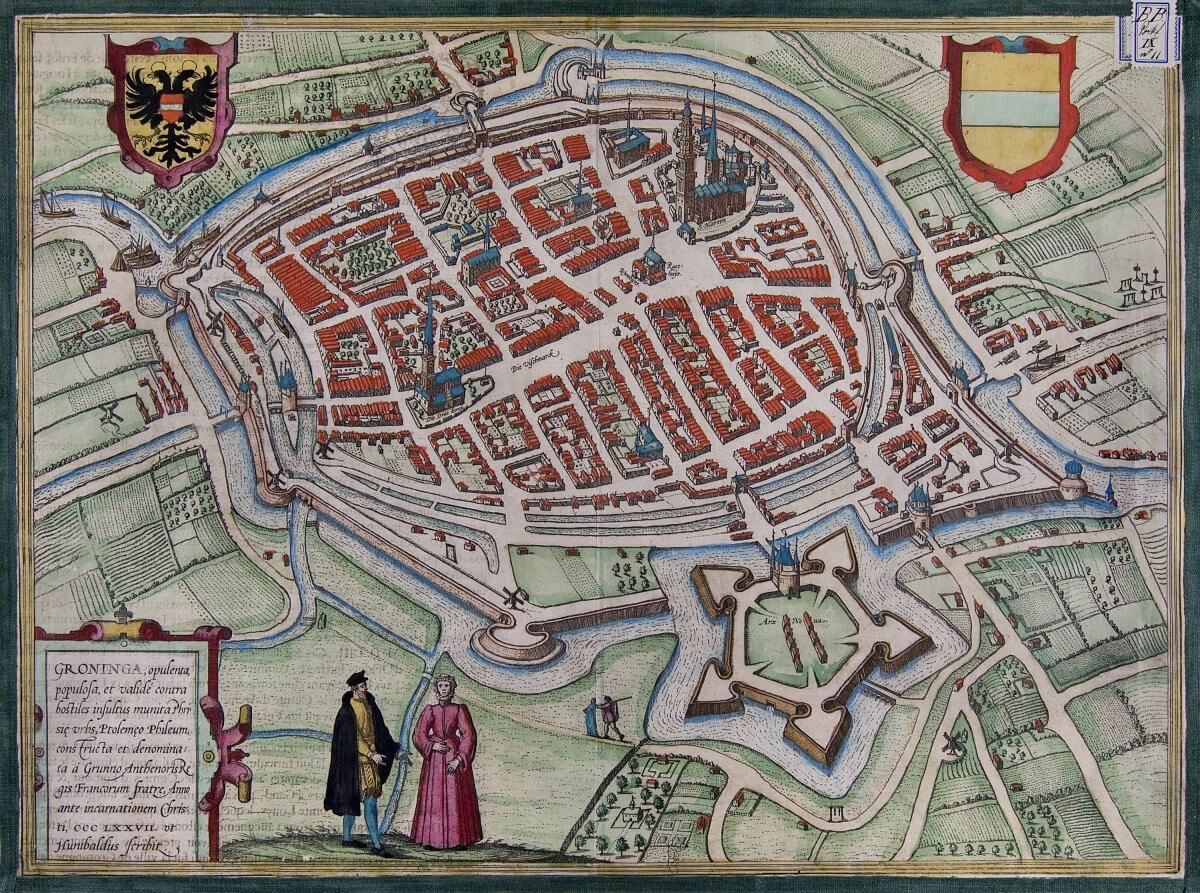
Groningen in 1575
The friesian name for this city is: Grins, and its area was belonging to pagan Magna Frisia once, which was existent until 719. The farmers and craftsmen there did neither accept christianisation nor feudalism. Between the river Weser (now germany) and the Delta of Rhine and Maas until the 11th century the free frisians were organizing themselves cooperatively in autonomous communities and did not accept the hierarchies that were established all around in Europe than. Nobody in Fryslan was belonging to the propertie of someone else. This status was called Friese Vrijheit, friesian freedom. The Map is showing the autonomous friesian regional, the Zeelanden around 1300 (red: the nowadays coastline):
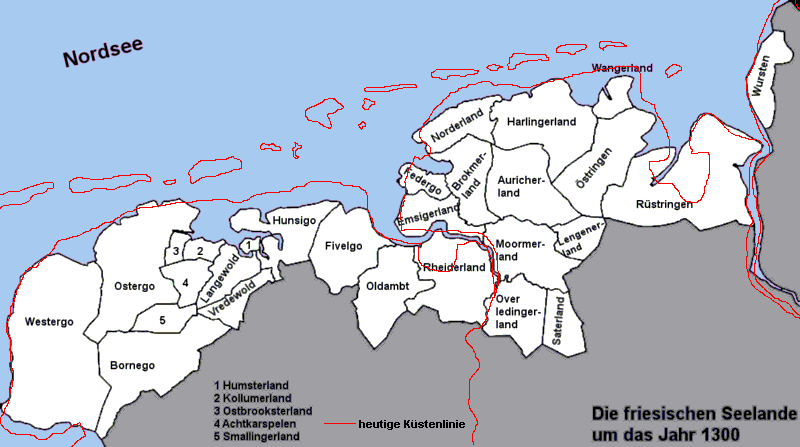
The city of Groningen, laying south of the friesian region Hunsigo, in the 14th century lost its autonomy to aristrocratie and church, as far as I, being first of all autonomous biologist, unterstood.
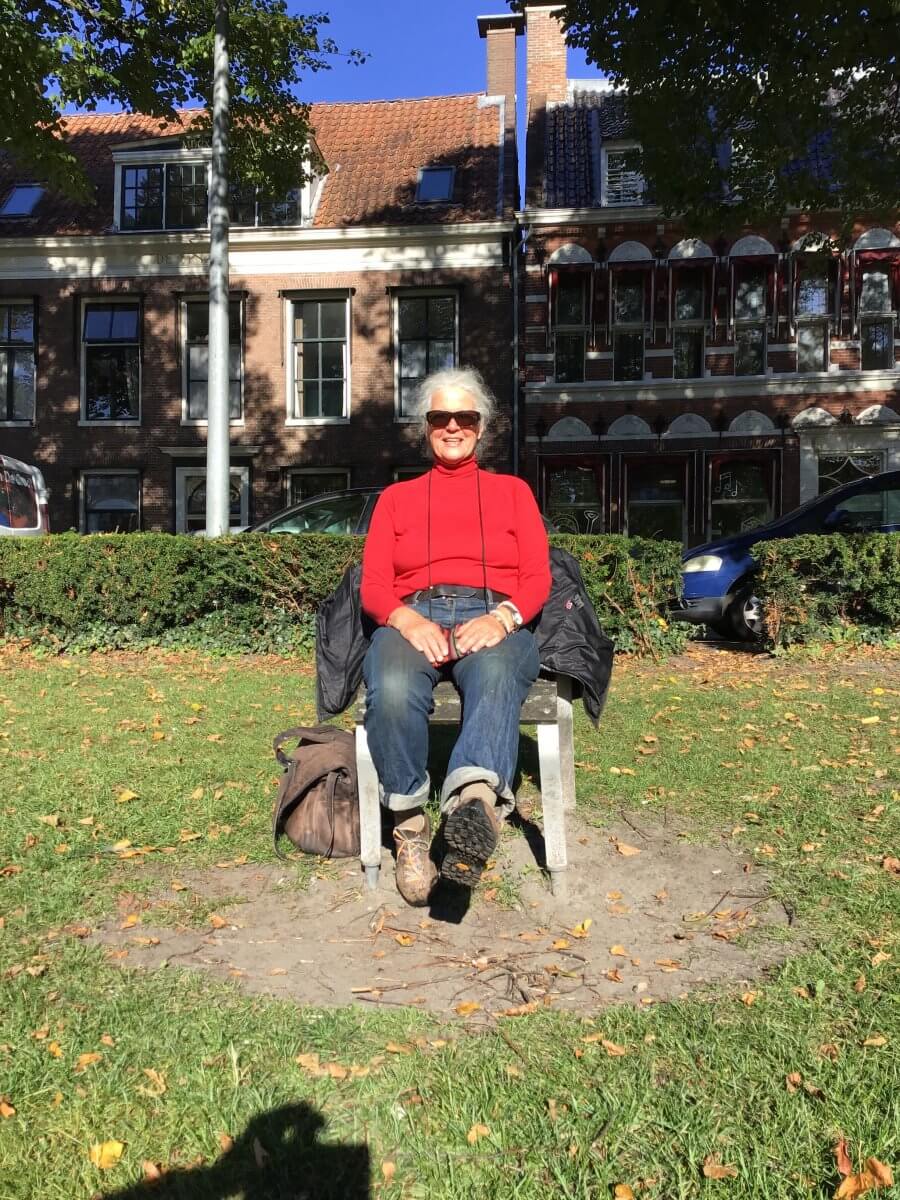
I ´m just sitting at the waterside and watching daily life. Mariano took a picture of me and my dangling legs on this throne. He is living on the streets of Groningen and his friendly gang send him for this shooting, because they decided, that he ist the nicest of them.
I go on writing, looking, listening. The bells from Martinikerk on Grote Markt, the big marketplace, which is since former times the center of the center, in a totally rural region.
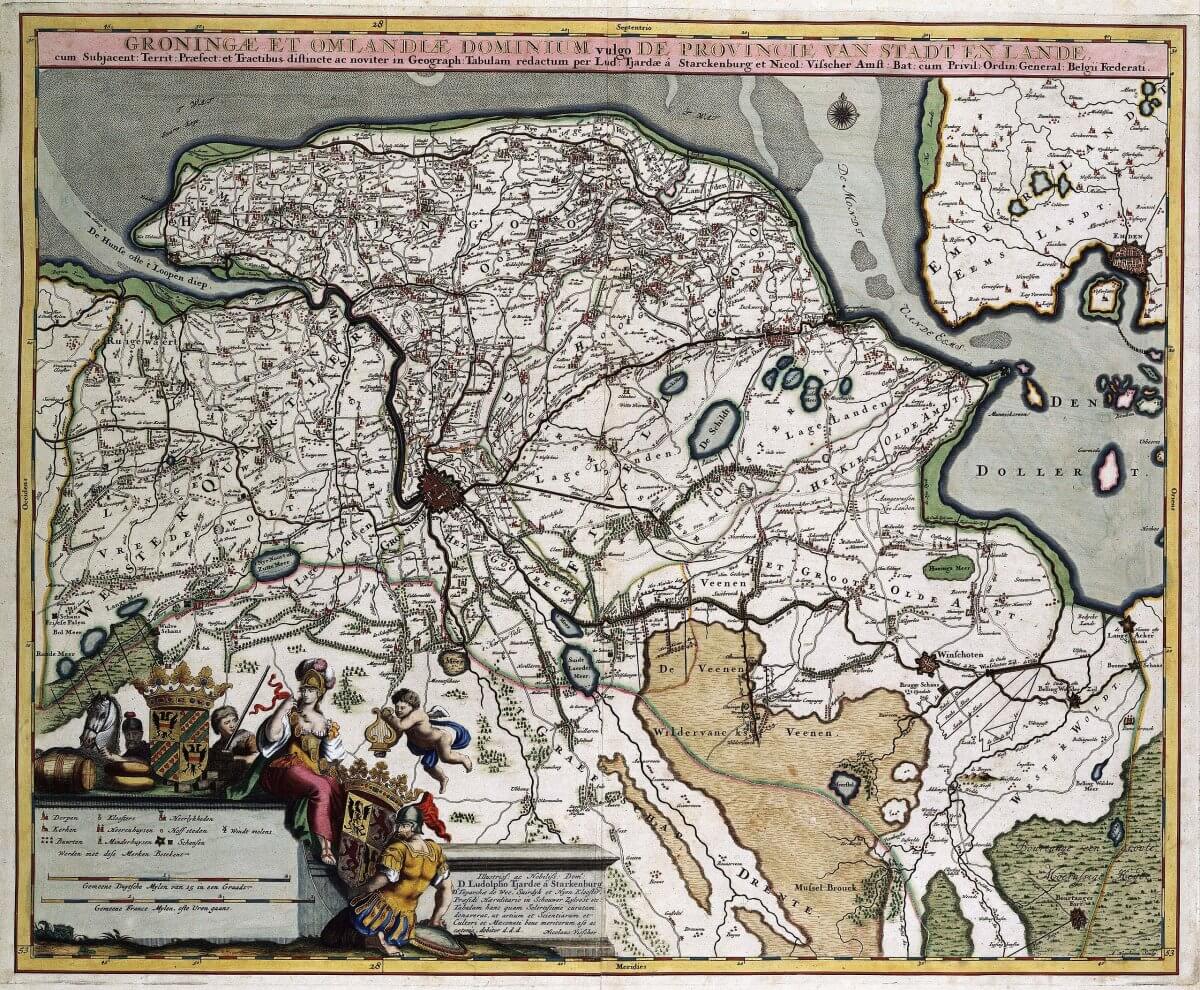
Like a spider in her net, the city of Groningen spreads its canals.
„Sparkling“ called my travelling companion in bus number 10, going from the central busstation, this little city. Coming with the train from Nieuweschans, I got out at one of the Netherlands most beautiful trainstations and had just changed to the cities public transport, where we started our small talk. She turned out to be a colleague, working in bird protection. In front of her stood a very colourful and very big bag. St. Martin is written on it. On this caribbean Island, from which a part still belongs to The Kingdom of the Netherlands, all her luggage was lost, and she had to organize new clothes and something to carry them. So now this bag is travelling with her everyway. I tell her the story of the checkered suitcase with which I am travelling since my aunt Lisa gave it to me ten years ago. It had travelled to Africa with her and then it went to Krasnojarsk in Sibir – to tell the uttermost eastern point – and to Tromsø in northern Norway – which was its uttermost northbound destination -. Both of us headed to the Simplon Hostel (simplonhostel.nl), being loved and estimated by both of us. I got „my“ single room on the ground floor, clear and quiet like a nuns cell.
I had to retire on that friday. I really don ´t want to write about Deutsche Bahn, famous for not working, but after reaching Leer in Germany, once also belonging to those free friesian lands presentet above, from where there are no trains going to the Netherlands because of a bridge being repared somewhere, or not being repared, we just stood there. And there was no bus, no sign, no signal nowhere. There should have been a bus to Groningen, but … none of all the devices could help us, and there was exactly nobody around to ask. Modern times. My grandma, born 1900, used to tell me, that trains used to go, busses too…
All of us, a huge crew had been gathering, had to fit in a little bus. And I once again loved may four soft bags, they fit in any sort of corner, under every seat. A russian guy showed me once, that the checkered one is perfectly fitting beneath the bed on a transsibirian railway-trip.
Now we where on our transfriesian way and I talked to Pezzo. His parents came from Macedonia to Germany, he is using german language more elegant than that many „Bio-Deutsche“ (as oldfashioned nationalists say for people whose ancestors have been „made in Germany“ long time ago or so), he is working for Deutsche Bahn, which is, as he explains „many little broken companies“.
Our country, Pezzo says, is „Autoland“. For some kilometers autobahn this state is spending more money than for all the railways, he explains, maybe little exagerrating. The cardrivers get their roads played by all of us, and those using trains, have to pay for the rails.
Pezzo is wishing, like I am, that not € is standing in the center of every debate or decision, but transport. He says, one could build bypasses for trains, as they are normal for highways. I suggested to reinvent Deutsche Bahn, empowered him for the transformation, which is needed, for which we need courage and fantasy – and real „Deutsche Wertarbeit“, german workmanship, products and constructions, that fit for future. Instead of the „parasitic economy“ Pezzo is criticizing.
Maybe we should recall the good old knowledge of the cooperative communities?
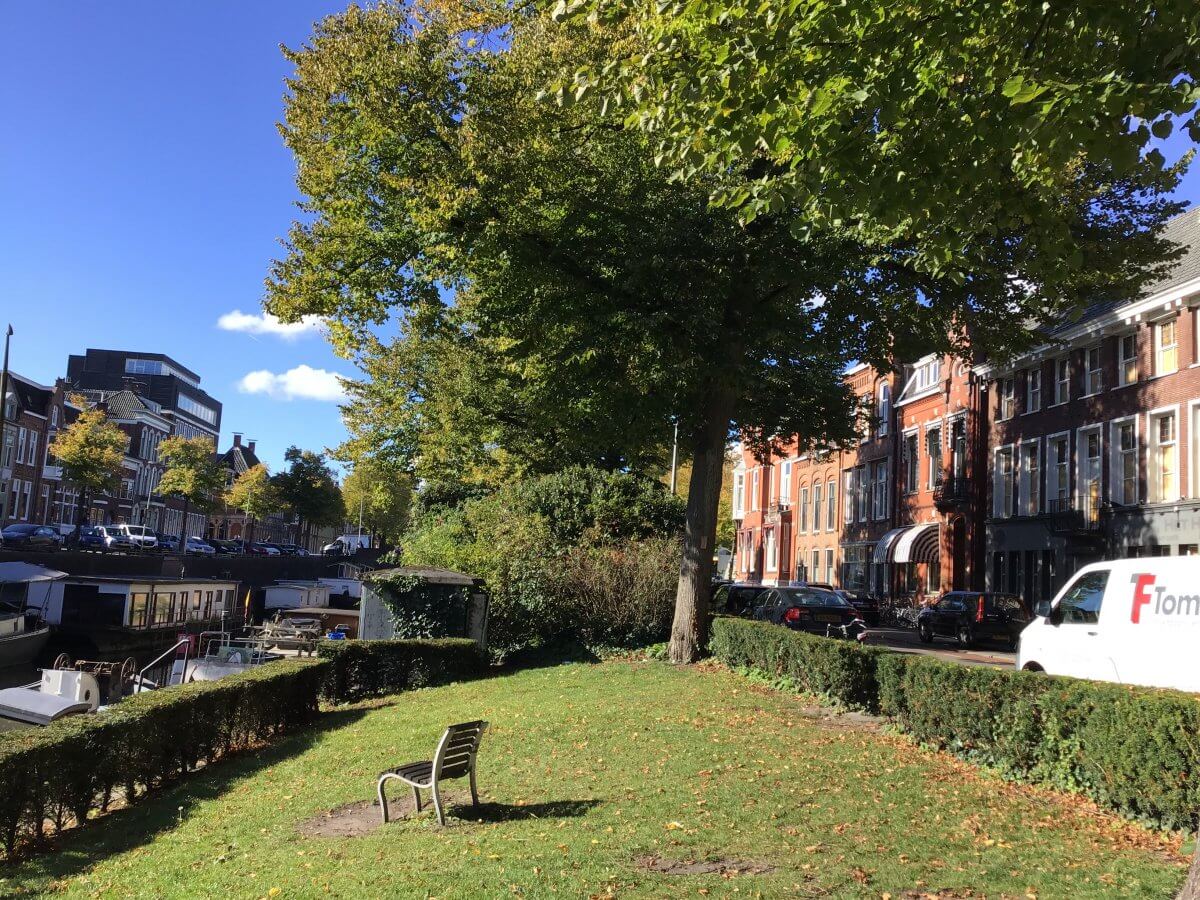
Back to Groningen. At the busstopp in front of the hostel Babette from Utrecht with shiny long blonde hair and a shiny pink trolley case takes a picture of my checkered suitcase and me. And then she is fastly returning to the absentees with her device.
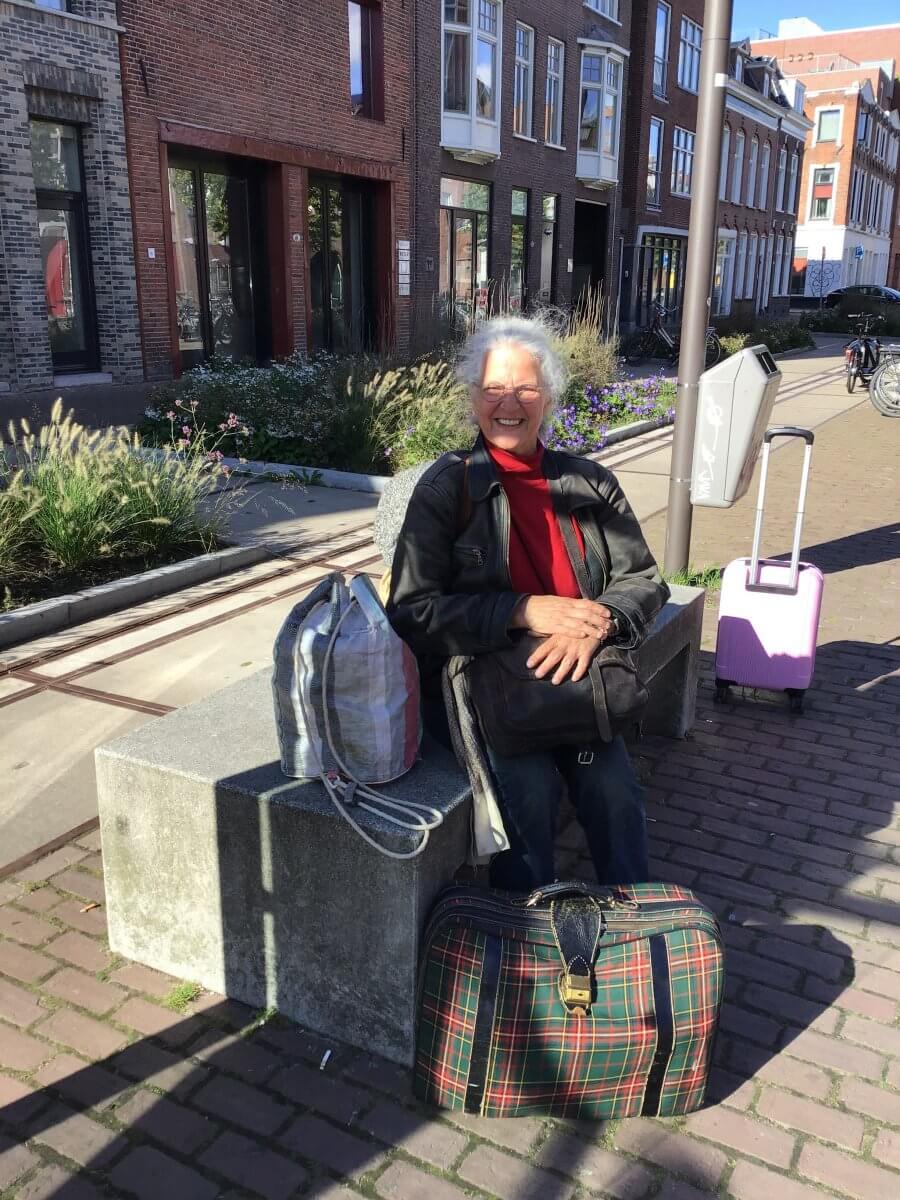
Once again I missed the very beautiful hall of Groningen Station because I found a hidden automatic machine selling tickets outside. I managed to check in at the right place (signs are „out“ and because I need my hands, I am asking, and getting where I want mostly faster at the other side of Googles universe) and than sat between groups of students, happily cruising into their weekend, chatting analog.
When our train ended his voyage in Lelystad, founded 1967 on land taken from the sea, on a polder, which is now the biggest artificial island of the world, a real intercontinental guy was helping me to catch the next train heading towards Amsterdam: californian/dutch/german/turkish this is how Anton Mohamed Wal describes his origins. And the two of us were riding to Almere.
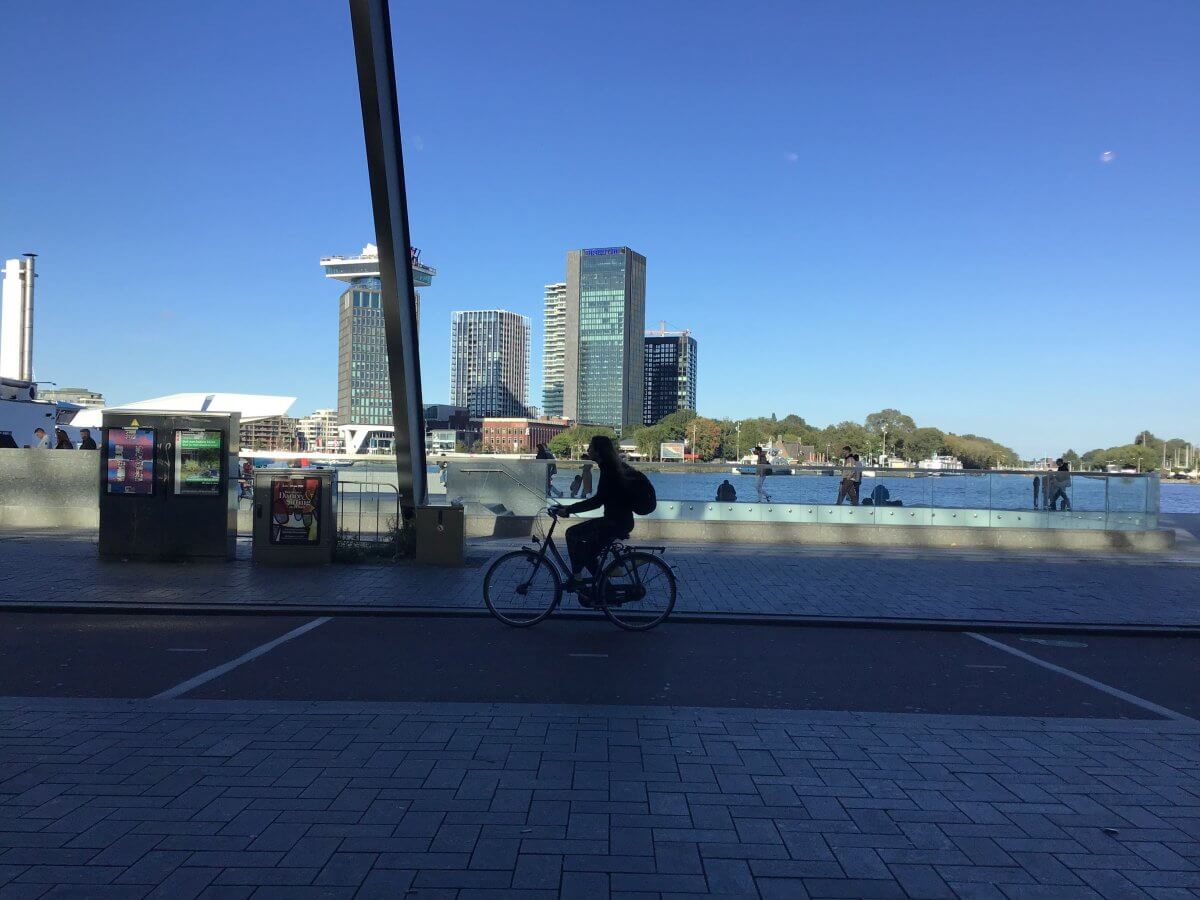
Finally I could sit down in this café with the view on bikers highway directly in between railway and ferry, leaving those oldfashioned automobiles somewhere else in a city, where you have more fiets (bycicles) than inhabitants.
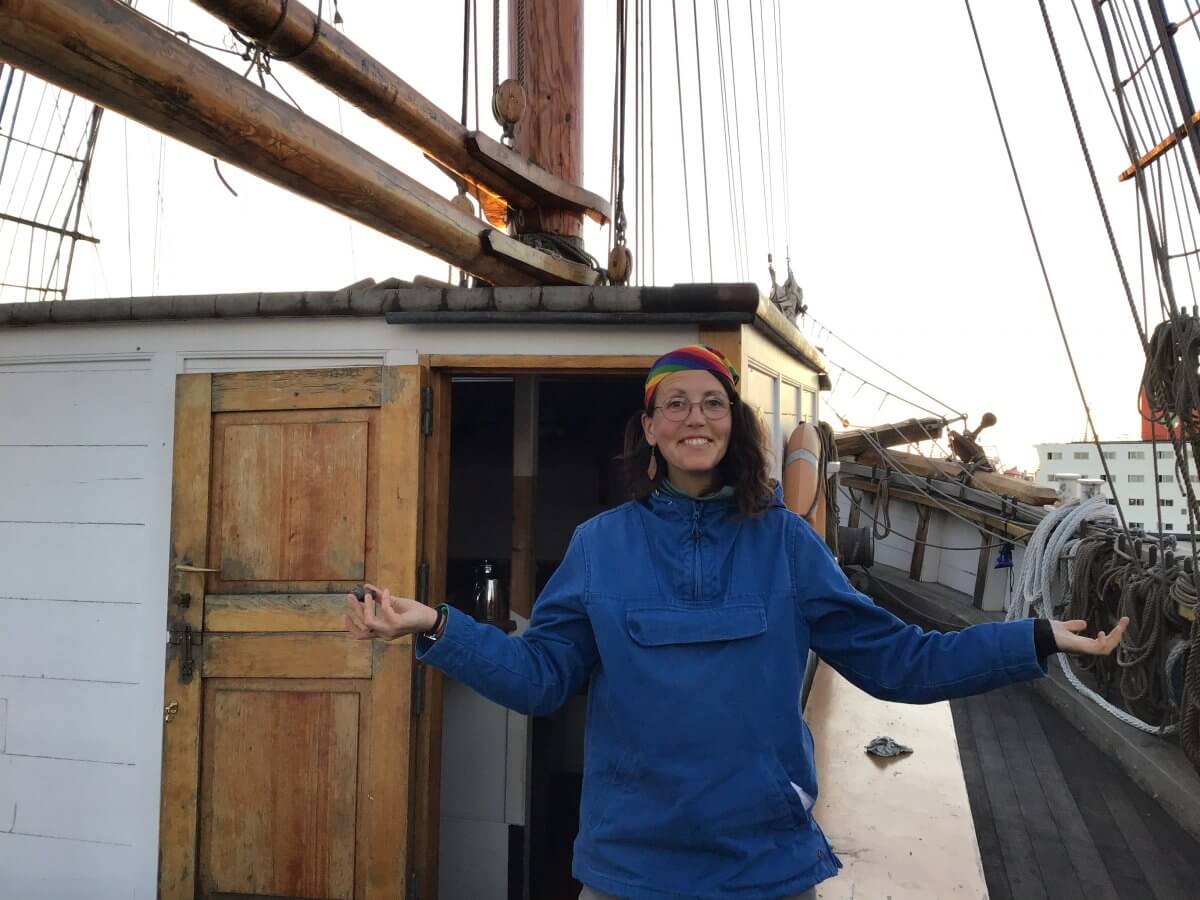
Then Peggy came and we headed via ferry versus NDSM, this former shipyard, where now beautiful Vega is laying, the old sailingvessel, made for the transport of goods without burning fossiles, Peggys main topic.
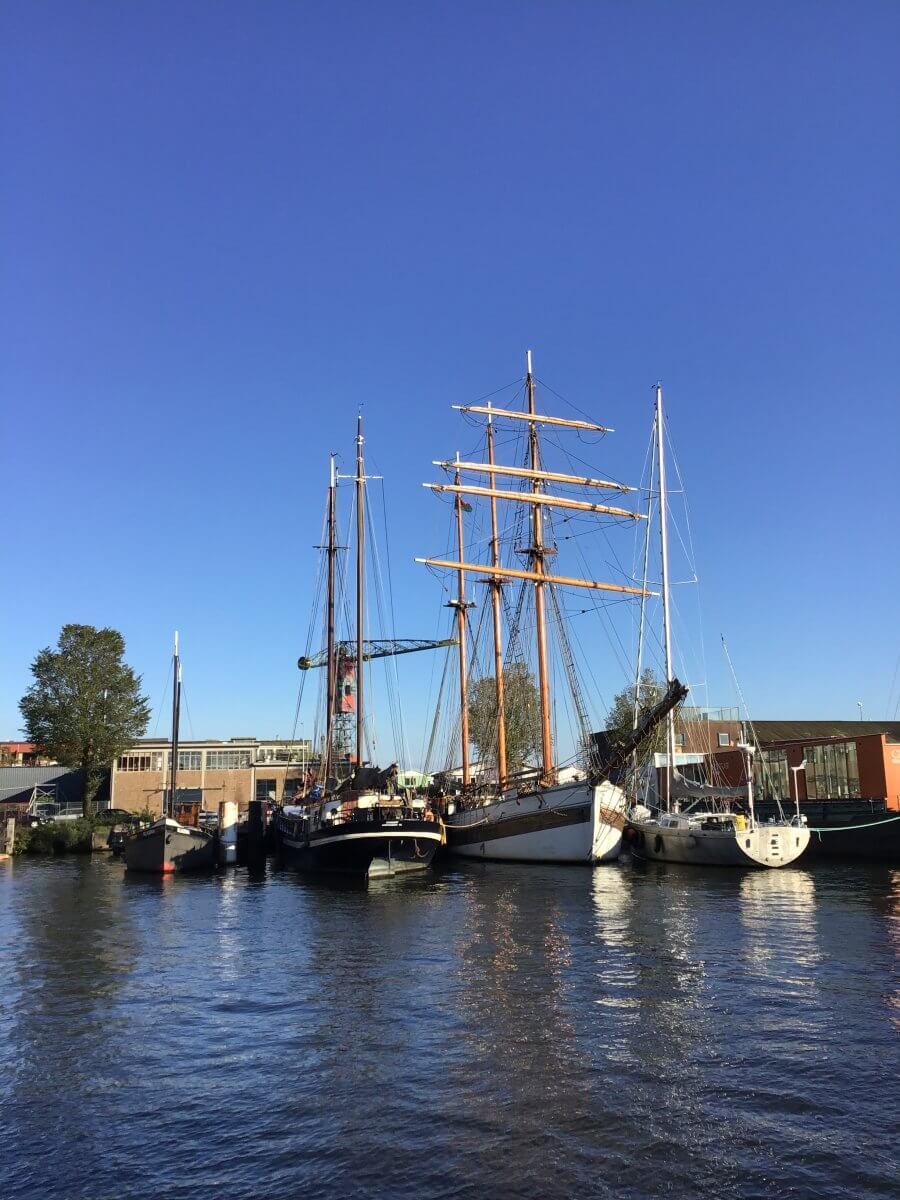
The Vega is the white one in the middle.
On board, a filmmaker from Amsterdam was joining us. She had contacted Peggy, who finished her nautical studies at the College in Enkhuizen (NCE), when she was making a film about woman at sea. We had a candle-light-dinner in Vega ´s cargo hold. That was the glowing start of our empowering weekend.
